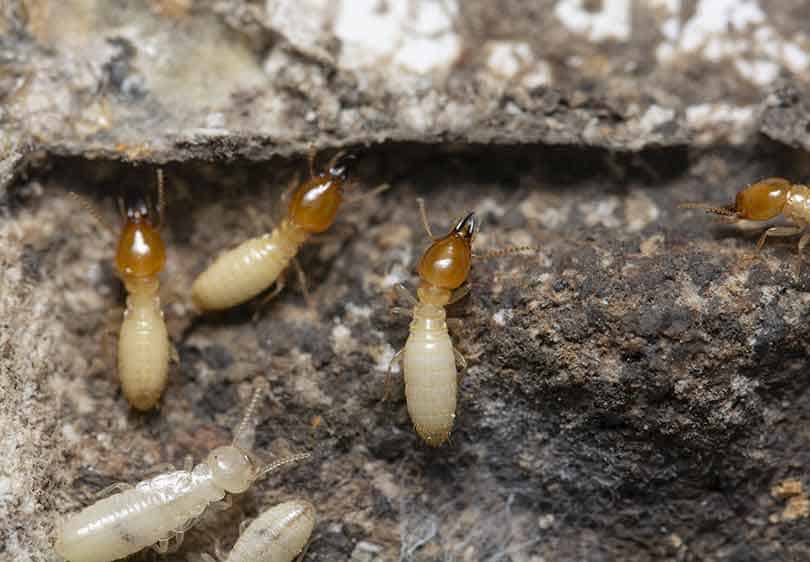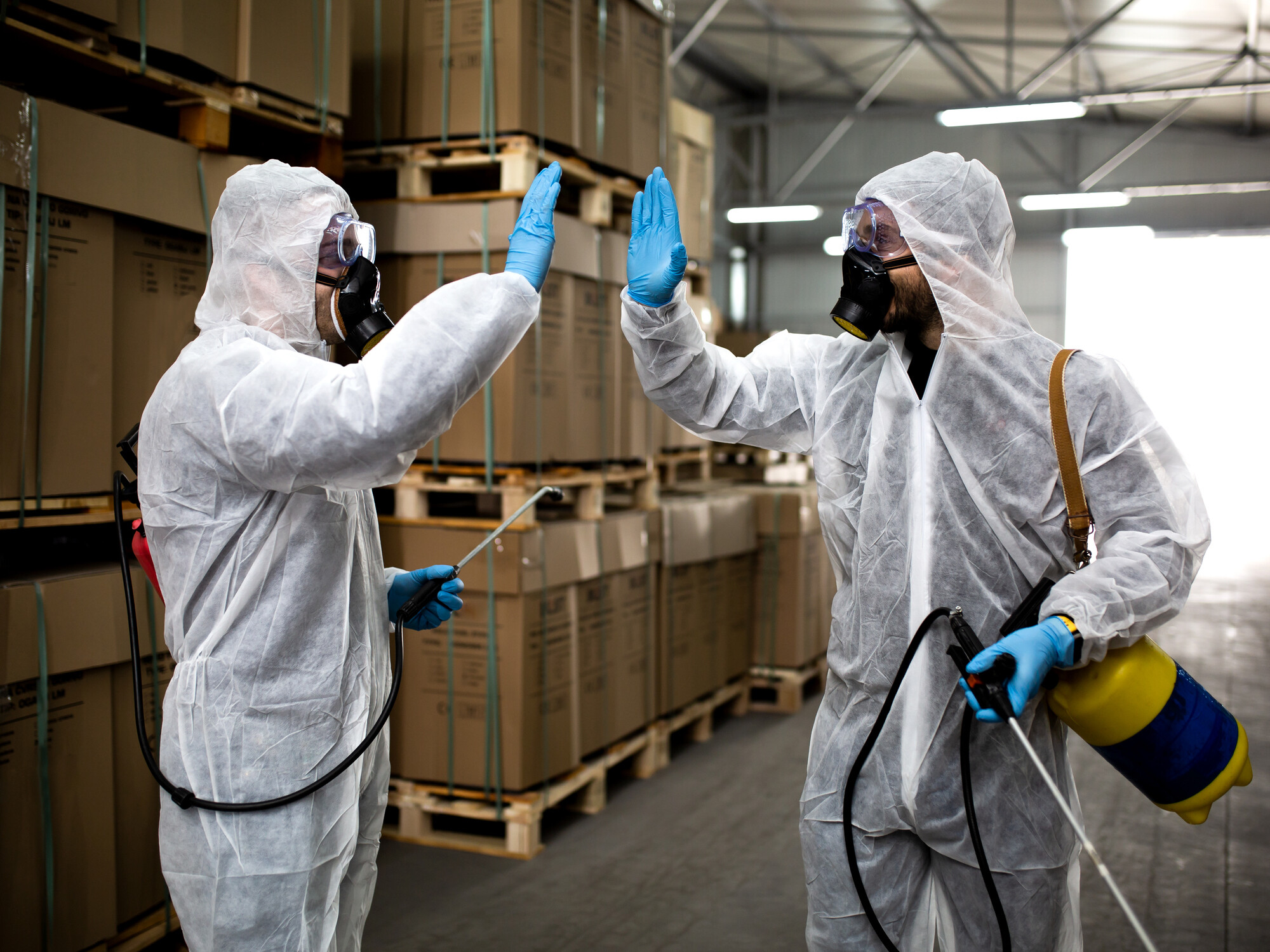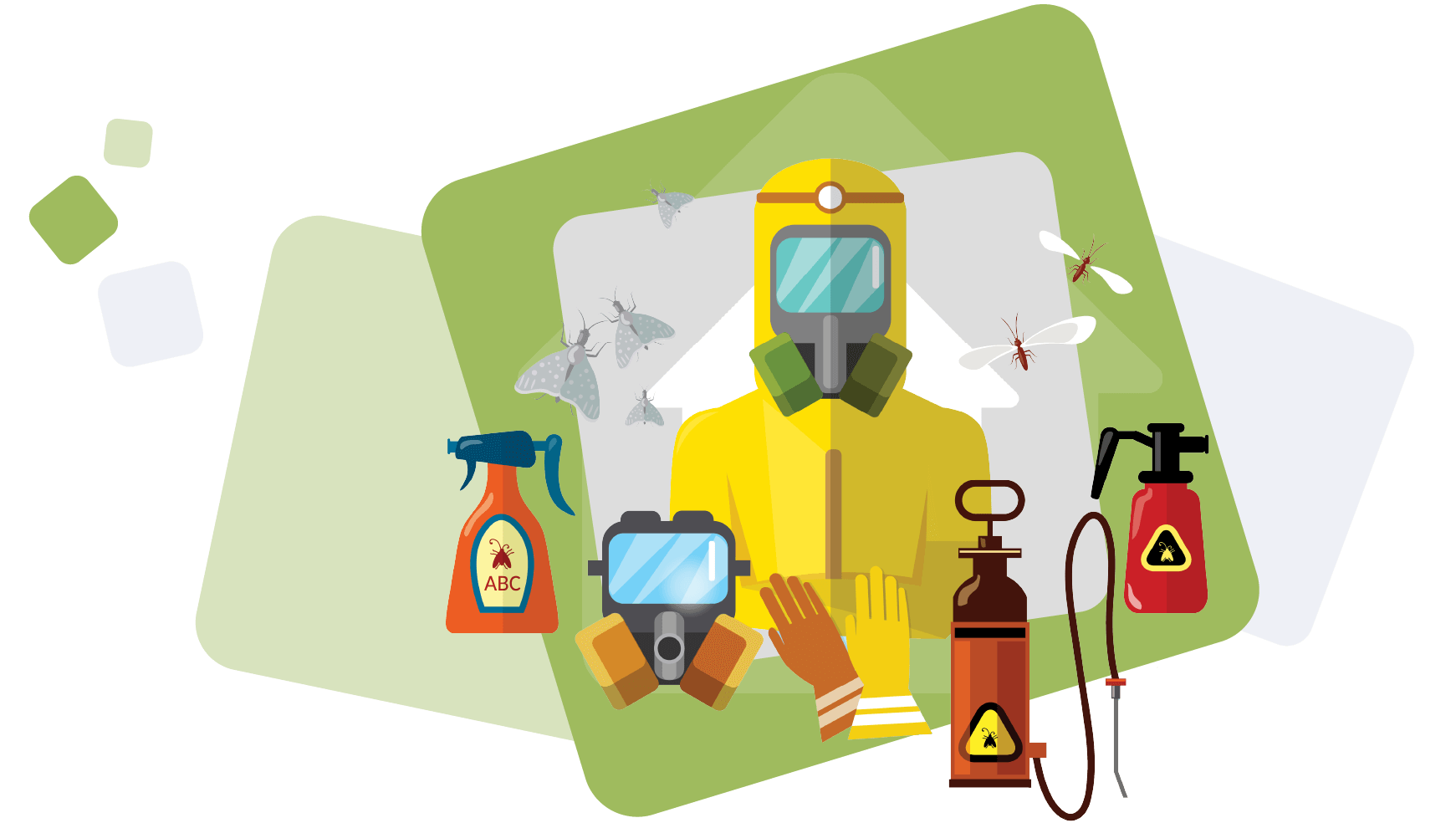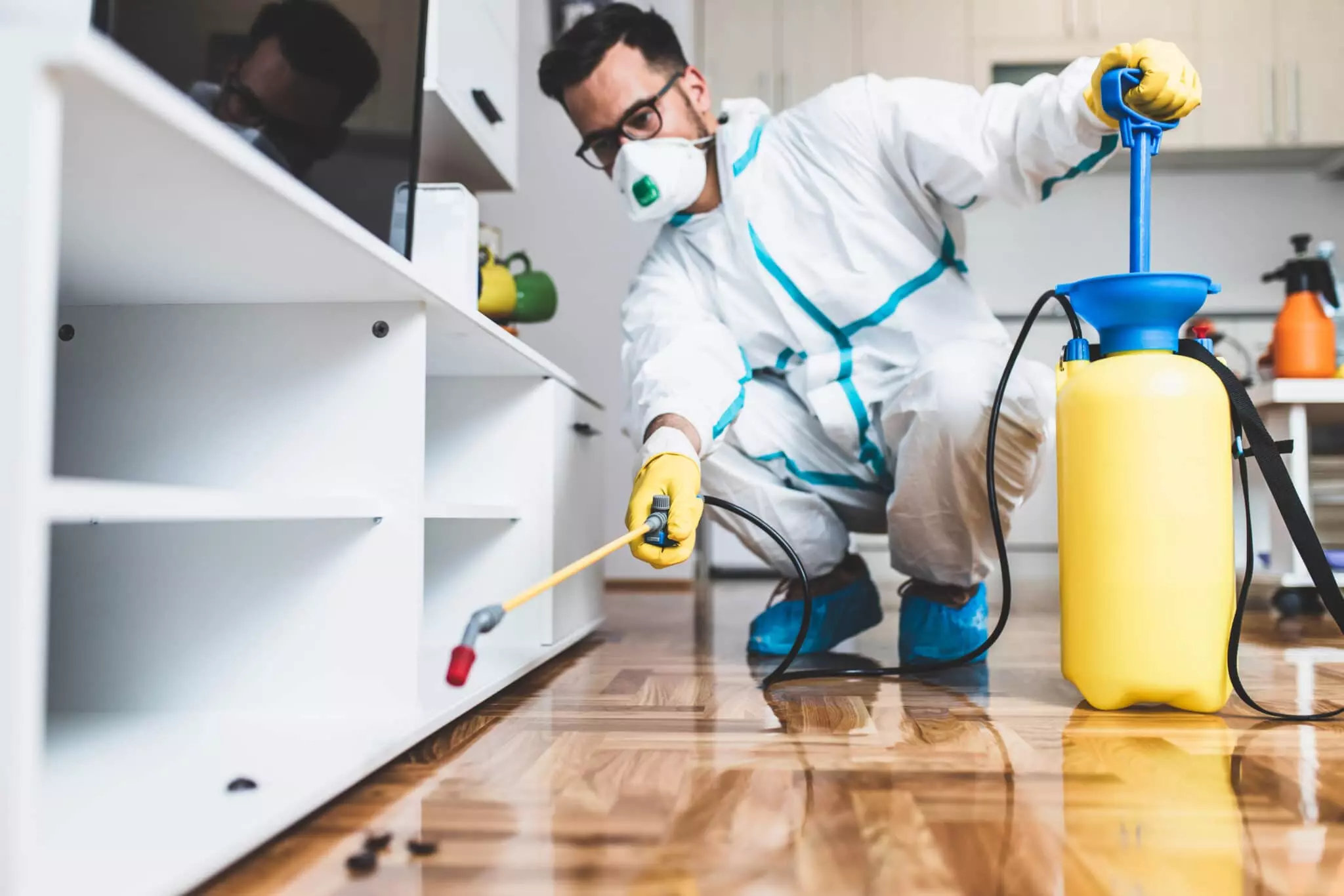Orem Pest Control Experts: Protecting Your Property with Proven Methods
Wiki Article
Finding the Different Kinds of Parasite Control Techniques and Their Applications
Pest control is an essential aspect of keeping a healthy and balanced and risk-free setting, whether it be in household, commercial, or farming setups. Various techniques have been created and refined throughout the years to effectively manage and alleviate parasite problems. From chemical techniques that target particular insects to biological techniques that harness all-natural predators, the realm of parasite control is vast and diverse. Recognizing the different kinds of parasite control techniques and their applications is vital for applying the most sustainable and appropriate solutions. Let's check out the details of these techniques and exactly how they can be successfully used to resolve pest-related challenges.Chemical Parasite Control Methods
Chemical bug control strategies are widely utilized in agriculture and bug administration to effectively eliminate or regulate pest invasions. These methods include the use of chemical compounds, such as pesticides, herbicides, and pesticides, to reduce or get rid of bug populations that present a danger to plants, livestock, or human health and wellness.While chemical bug control techniques can be highly efficient in taking care of parasite populations, they additionally raise problems regarding potential ecological and health threats. Improper use or overuse of chemical pesticides can result in air pollution of soil, water, and air, harming non-target microorganisms and triggering long-term eco-friendly damage. In addition, duplicated direct exposure to chemical deposits may position wellness dangers to farmworkers, consumers, and wildlife. It is vital to comply with safety and security guidelines, utilize integrated pest administration strategies, and consider alternate methods to lessen the unfavorable influences of chemical pest control techniques.
Biological Pest Control Methods
 Organic parasite control approaches make use of living organisms to manage and reduce insect populations in a sustainable and eco-friendly manner. This method includes presenting natural predators, parasites, or virus to regulate pests without the need for artificial chemicals. One usual technique is the release of ladybugs to fight aphids in yards, as ladybugs are natural killers of these destructive bugs. One more example is the use of Bacillus thuringiensis (Bt), a microorganism that generates contaminants deadly to specific insect larvae, to regulate insects and caterpillars.
Organic parasite control approaches make use of living organisms to manage and reduce insect populations in a sustainable and eco-friendly manner. This method includes presenting natural predators, parasites, or virus to regulate pests without the need for artificial chemicals. One usual technique is the release of ladybugs to fight aphids in yards, as ladybugs are natural killers of these destructive bugs. One more example is the use of Bacillus thuringiensis (Bt), a microorganism that generates contaminants deadly to specific insect larvae, to regulate insects and caterpillars. 
Organic parasite control methods provide a number of advantages over chemical methods. Overall, biological bug control approaches offer a effective and natural option to typical chemical therapies, advertising a well balanced ecosystem and healthier settings.
Physical Insect Control Approaches
Using physical approaches to regulate pests entails the use of mechanical or non-chemical methods to manage and alleviate insect infestations efficiently. These methods rely upon physical obstacles, traps, and other strategies to prevent and get rid of pests without the usage of unsafe chemicals. One usual physical parasite control technique is the installation of screens, fencings, or internet to block pests from entering particular locations. This technique is especially efficient in shutting out bugs and small animals from yards or structures.An additional physical method is using traps, such as breeze catches for rodents or pheromone traps for pests. These traps purpose to capture insects without posing any risk to human beings or the atmosphere. Additionally, physical control approaches can consist of methods like handpicking pests off plants, utilizing vacuum cleaner gadgets to get rid of insects, or employing warmth treatments to eradicate bed bugs and various other insects in plagued areas.
Integrated Pest Monitoring Methods
Executing an alternative method to pest administration, Integrated Pest Monitoring (IPM) methods aim to incorporate numerous reliable strategies to stop and manage parasite infestations while decreasing ecological effect and ensuring lasting bug control methods. IPM involves the assimilation of several control approaches such as biological control, social methods, mechanical control, and the careful use pesticides.

In addition, IPM emphasizes the importance of monitoring and analyzing pest populaces to identify the most suitable control methods. By executing IPM strategies, bug control initiatives end up being more targeted and efficient, decreasing the threats linked with too much pesticide usage and promoting long-term parasite management options.
Natural and Organic Insect Control Options

One popular organic pest control technique is neem oil, obtained from the seeds image source of the neem tree, which acts as a repellent and disrupts the growth and growth of bugs. Diatomaceous earth, a natural silica-based powder, is an additional efficient natural insect control option that works by drying out insects upon contact. By integrating natural and all-natural parasite control choices into pest monitoring approaches, people can successfully regulate insects while minimizing injury to the atmosphere and advertising sustainable practices.
read this article
Final Thought
Finally, numerous insect control strategies such as chemical, organic, physical, incorporated parasite administration, and all-natural choices are available for successfully taking care of parasite infestations. Each approach has its own benefits and applications depending on the sort of bug and the atmosphere. By comprehending the various sorts of parasite control strategies and their applications, individuals can make educated decisions on one of the most ideal approach to manage bugs and safeguard their residential property.Chemical insect control strategies are commonly utilized in farming and parasite management to properly eradicate or control pest invasions - Orem Pest Control. Natural bug control techniques entail making use of biological control representatives, such as bloodsuckers or predators, to take care of pest populaces. By incorporating natural and all-natural pest control alternatives into insect monitoring approaches, people can effectively manage parasites while minimizing injury to the environment and advertising lasting techniques
In final thought, various parasite control techniques such as chemical, organic, physical, incorporated parasite management, and natural choices are offered for successfully taking care of pest infestations. By comprehending the different types of pest control techniques and their applications, people can make enlightened choices on the most suitable method to regulate parasites and shield their home.
Report this wiki page